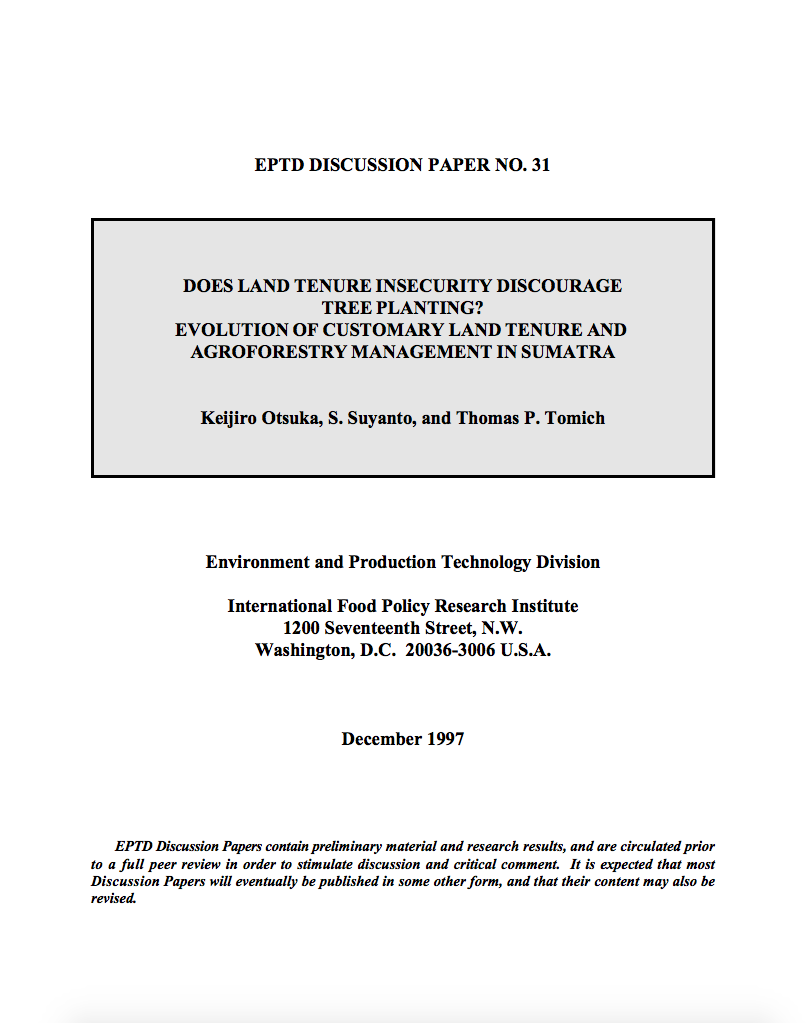Focal point
Location
About IFPRI
The International Food Policy Research Institute (IFPRI) provides research-based policy solutions to sustainably reduce poverty and end hunger and malnutrition in developing countries. Established in 1975, IFPRI currently has more than 500 employees working in over 50 countries. It is a research center of theCGIAR Consortium, a worldwide partnership engaged in agricultural research for development.
Vision and Mission
IFPRI’s vision is a world free of hunger and malnutrition. Its mission is to provide research-based policy solutions that sustainably reduce poverty and end hunger and malnutrition.
What We Do
Research at IFPRI focuses on six strategic areas:
- Ensuring Sustainable Food Production: IFPRI’s research analyzes options for policies, institutions, innovations, and technologies that can advance sustainable food production in a context of resource scarcity, threats to biodiversity, and climate change. READ MORE
- Promoting Healthy Food Systems: IFPRI examines how to improve diet quality and nutrition for the poor, focusing particularly on women and children, and works to create synergies among the three vital components of the food system: agriculture, health, and nutrition. READ MORE
- Improving Markets and Trade: IFPRI’s research focuses on strengthening markets and correcting market failures to enhance the benefits from market participation for small-scale farmers. READ MORE
- Transforming Agriculture: The aim of IFPRI’s research in this area is to improve development strategies to ensure broad-based rural growth and to accelerate the transformation from low-income, rural, agriculture-based economies to high-income, more urbanized, and industrial service-based ones. READ MORE
- Building Resilience: IFPRI’s research explores the causes and impacts of environmental, political, and economic shocks that can affect food security, nutrition, health, and well-being and evaluates interventions designed to enhance resilience at various levels. READ MORE
- Strengthening Institutions and Governance: IFPRI’s research on institutions centers on collective action in management of natural resources and farmer organizations. Its governance-focused research examines the political economy of agricultural policymaking, the degree of state capacity and political will required for achieving economic transformation, and the impacts of different governance arrangements.
Research on gender cuts across all six areas, because understanding the relationships between women and men can illuminate the pathway to sustainable and inclusive economic development.
IFPRI also leads two CGIAR Research Programs (CRPs): Policies, Institutions, and Markets (PIM) andAgriculture for Nutrition and Health (A4NH).
Beyond research, IFPRI’s work includes partnerships, communications, and capacity strengthening. The Institute collaborates with development implementers, public institutions, the private sector, farmers’ organizations, and other partners around the world.
Resources
Displaying 1421 - 1425 of 1521Bargaining and Gender Relations: Within and Beyond the Household
How are family gender relations affected by extra-household conditions in South Asia' By investigating quantitative factors (e.g. land ownership and income), along with qualitative aspects (e.g. social perceptions, interaction of gender relations in market, community, state and household), this paper shows how these multiple conditions influence the relative bargaining power of different household members. It argues that such understanding is vital for designing policy interventions. Control over land and income increases an individual's bargaining power.
Should India invest more in less-favored areas?
Developing countries have to allocate limited government resources for rural areas among different investment activities and regions to achieve the twin goals of productivity growth and poverty alleviation. This is particularly important at a time when many countries are facing severe financial constraints. This paper develops a framework and provides empirical evidence on the impact of government investments in technology, irrigation, education and infrastructure on agricultural productivity growth and rural poverty reduction in rural India.
Does land tenure insecurity discourage tree planting?
It is widely believed that land tenure insecurity under a customary tenure system leads to socially inefficient resource allocation. This article demonstrates that land tenure insecurity promotes tree planting, which is inefficient from the private point of view but could be relatively efficient from the viewpoint of the global environment. Regression analysis, based on primary data collected in Sumatra, indicates that tenure insecurity in fact leads to early tree planting.
Population pressure and the microeconomy of land management in hills and mountains of developing countries
Concerns about harmful environmental impacts are frequently raised in research and policy debates about population growth in the hills and mountains of developing countries. Although establishing wildlife corridors and biosphere reserves is important for preserving selected biodiverse habitats, for the vast majority of hilly-mountainous lands, the major ecological concerns are for the sustainability of local production systems and for watershed integrity. What matters for sustained use of those lands not only is the number of producers but also what, where and how they produce.






